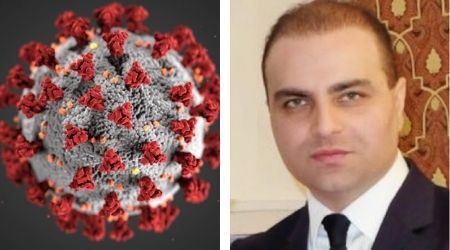Coping with COVID-19: New analysis by UON Academic
Date 25.09.2020
25.09.2020
A University of Northampton academic has published research investigating the impact of COVID-19 on our mental health.
Dr Amin Hosseinian-Far, Associate Professor & Deputy Subject Leader in Business Systems & Operations, is part of a research team exploring, through a recent meta-analysis, the prevalence of stress, anxiety, depression among the general population during the COVID-19 pandemic.
Speaking about the research, Dr Amin Hosseinian-Far said: “COVID-19 not only causes physical health concerns but has also resulted in a surge in mental health outcomes, brought on by loneliness, separation and drastic changes to the norms of our daily lives, amongst many other factors.
“Through the research, we firstly identified relevant studies using a systematic review approach. Subsequently, we examined levels of stress, anxiety, and depression reported within the selected studies from around the globe. We then approximated the overall prevalence of the particular mental health outcomes among the general population during the pandemic, through meta-analysis and related statistical procedures. Looking at this range of studies, our research team found that, during the COVID-19 pandemic, several symptoms of mental trauma, such as emotional distress, depression, stress, mood swings, irritability, insomnia, attention deficit hyperactivity disorder, post-traumatic stress, and anger have risen sharply
“We were especially interested to examine a wide range of reported results from around the globe, including the early studies from China, the first place to experience the full force of the Virus, exploring the impact on the mental health of the population.
“It is essential that global governments begin to make policy decisions to support the mental health of communities and to develop psychological interventions that can improve the mental health of vulnerable groups during the COVID-19 pandemic.”
The research team includes: Nader Salari, Amin Hosseinian-Far, Rostam Jalali, Aliakbar Vaisi-Raygani, Shna Rasoulpoor, Masoud Mohammadi, Shabnam Rasoulpoor, and Behnam Khaledi-Paveh.